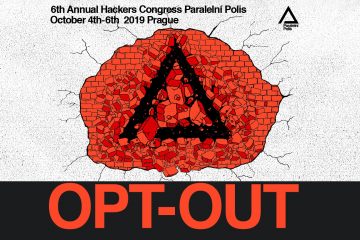Parallel Polis as a catalyst of changes – what is our ‘secret’ plan?
We realize that as an organization we are unreadable for many, and people are not exactly aware of what we are doing and why. Some people feel that our goal is to criticize other people or the State, which is understandable. It is due to the fact that we think that any meaningful criticism must be public. We are an open and transparent organization.
What is our plan for this world? What do we really want to achieve and why should you care about it? Let’s start with what our plan is not – not to destroy, worsen or improve the State. We consider the state to be an obsolete institution that will not lead us to a prosperous and fair society, to individual freedom or individual happiness. We do not have time to interact with it, we do not attend meetings, we do not discuss with it. If there is a problem in our society, which “ends in Kitsee” (ie not relevant outside), it means that it is a local problem that sooner or later will resolve itself or we will solve it by relocating us.
We see our impact globally. We need and build a local community, but that does not prevent us functioning as a global “planet resident”. For example, if we face up difficulties with the business environment, we can point it out (public criticism). Another possible solution is that we can try to solve this problem in an alternative way. For example, banks have closed and refuse to open bank accounts to many of our members. What are the alternatives? Are there any foreign banks that would open accounts for their companies? Can these companies run on cash and cryptos without bank accounts? How must they change their business model to do it? Within the community, we encourage the exchange of information so that not all entrepreneurs have to explore the same unworkable solutions but quickly move forward. Of course, the next open possibility is to operate in other countries – if the business environment does not fit our needs we can choose another that fits our needs better.
In this way, we also see the formation of social structures. The traditional way of civil democracy is civic engagement. From petitions, lobbying, media pressure to the founding of a political party that aims to change things. We consider these methods to be extremely inefficient and we are looking for other options that will move us towards the goal as soon as possible. They may not be universal. A solution that suits only to some members of the community is fine – the more possibilities, better the results. Our job is to find solutions, spread them within the community and help people to choose the one which suits them. We do not look for one universal truth, we explore all available options, combine them and improve them.
How exactly this journey will look like? First of all, as Joseph Campbell remarked: “If the way you are walking on is clear, you are probably walking along someone else’s path.” Much of what we have to go through is unclear and it will be the subject of discovery. Building parallel social institutions involve more fun because we can experiment. Since no one is forced into anything and experimentation is the basis of our way of life, we have more questions than answers. But that is not a problem.
Some people are literally afraid of Parallel Polis. They do not want to associate with us for various reasons, but different forms of fear are behind many of those reasons. Probably the most common is that, by criticizing current social institutions (which is often the state), we want to destroy them. But that’s not true – we have no mandate, no time or no taste for destroying anything. On the contrary, criticism of anything allows the criticized entity to take steps to improve. If it does not do it and does not learn from well-meant criticism, it is their shame. In the worst case, the status quo remains.
Criticism is especially important in order to identify problems and make sure that the parallel solution we are examining or building does not contain these problems. We do not plan to devote any energy to destroying anything – if someone is happy with the solution of some social problem, let him still use it quietly.
Our main task is to map and create parallel solutions. If a criticized product or service does not suit them and we know of a solution that would suit them more, one needs to prepare just for the criticized solution not being used anymore.
—————–
Freedom of choice
The world is changing with the advent of exponential technologies. One fundamental change is that we have a lot more options. If the business environment does not fit our needs, we have several dozen countries, special business zones or virtual environments where we can move our existing business plans or invent the new ones.
With the advent of the Internet, modern feudalism is gradually leaving. The society has gone through many phases, ranging from a combination of global and local taxation in the Roman Empire, through a bond to the feudal “sovereign”, to the nation states that tax everything – from production, consumption, labor through capital gains to property. What is changing now? If someone is doing ICO, the very first decision he makes is “which jurisdiction will I use”? We did not have time to do such a decision in the past, it was not easy either. We lived in a nation-state and we used only one jurisdiction. In today’s Internet, we even have a potential to use “virtual jurisdiction”, as anonymous projects that have decided to work only in the virtual world. Probably the largest project of this kind is Bitcoin, which originated “on the Internet” and from the beginning was governed by the rules
This freedom of choice of jurisdiction has brought an unprecedented phenomenon. From the state imposing its citizens how much of their income they have to give up, we’ve gotten into a society where we can largely choose if we want to be subject of some state jurisdiction, and if so, which one. Of course, the States are trying to limit this freedom by adopting laws, but de facto, we still have it in many areas of our lives.
So if the existing structures have something to worry about, it is not that we want or can destroy them. Overall, we are not people who would be fulfilled by destruction. If we do not like something, we just leave. Representatives of States often offered this solution: “If you do not like it here, go elsewhere.” However, with the advent of new technologies, this option is real and the State does not like it. When successful people go to other jurisdictions, government officials or the State fans talk about betrayal. And it is even worse than who those are successful are often popular – if some entrepreneur who manufactures plastic windows leaves, the majority of a society considers him as a “greedy entrepreneur”, but if he is a favorite athlete, it is harder to criticize him.
Conclusion
———-
Do not worry, the only things what you can lose are those “invisible” barbed wires that restrict you. Just as the Fall of the Roman Empire, which had been extinct for many centuries, many people still thought that they lived in the Roman Empire, even though the reality that directly influenced them was completely different. The same thing will happen in the future. If we would be successful, we will resolve all social problems better than the State does, with the help of technologies, clever innovators and many interesting open-source projects. Let those who want to vote, sign anthems, hang flags and use state money. We will solve our problems differently – whether in the virtual world or in our communities. Perhaps some state officials will read our criticism, change
Our ideal result is to achieve the status of the Catholic Church. Once an obligatory institution that was collecting taxes, executing people and providing important services, today is something we can voluntarily choose or not. The state office should be a modern church – I only enter if I want, not because I have to. As long as this happens, take the Paralelná Polis as an escape route. You can get out through it.
How to get this reality closer?
If you would like to learn more about what we do, read [our blogs](https://paralelnapolis.sk/blog), attend [our events](https://paralelnapolis.sk/events/), [subscribe to our mailing list](https://paralelnapolis.sk/newsletter/), [join the members or the board](info@paralelnapolis.sk). People gain by using this opportunity.
If you would like to [support us, we need any support now. Every help is welcomed and we are grateful for it.](https://paralelnapolis.sk/podporte-nas/) Opening the space is costly and without it

